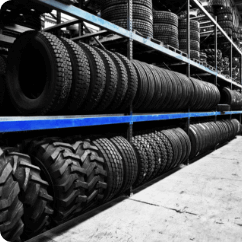All-Season Tires in Winter: The Good & Bad Explained
In theory, yes, though the answer really depends on the construction of the tire. A chunkier tread pattern might lend itself better to driving in snow, but even a sportier tire design can find grip in wintry conditions if its rubber compound is formulated for traction on icy surfaces.To get more news about best all season tires for cars, you can visit gofortunetire.com official website.
Certain jurisdictions across North America (including some areas of British Columbia in Canada, for instance) require all cars to be fitted with all-season tires (as opposed to summer-only tires) during the winter months. Plus, there are all-weather tires in the snow as well – something winter drivers should also look at.

Still, we recommend dedicated winter tires for any vehicle that will be driven regularly in freezing weather and snow and ice conditions. Their rubber compounds stay softer and more flexible in the cold, and their tread designs are optimized to find as much grip as possible on slippery surfaces.
First, it’s important you know how to read tire sidewall markings. All-season tires bear the M+S (mud and snow) designation on the sidewall. That means the tire has wider tread grooves and larger tread blocks to provide more traction in muddy and snowy conditions than a tire intended for summer driving only. See the image below:
What is a touring all-season tire?
A touring all-season tire tries to be all things to as many different types of driver as possible. Its design will prioritize the most commonly desired qualities in a tire, like long tread life, a quiet ride and useful winter traction. Expect a touring all-season tire to cost more than those labeled simply as “passenger” all-seasons.
Pros & Cons Of Driving In Snow With All-Season Tires
As the term suggests, an all-season tire is meant to provide confidence-inspiring performance under any road conditions. For a performance-oriented car, an all-season tire is a better choice for occasional winter driving than a summer tire.
If you have a vehicle that will see limited use in winter conditions and you don’t want to have to switch between dedicated summer and winter tires, a quality set of all-seasons is a suitable compromise.
Sure, having one set of tires all year round will keep more money in your wallet, save time and hassle, and avoid hogging valuable garage or shed space. And while all-seasons will offer adequate performance during the winter months, nothing beats a set of winter-only tires for snow and sleet. The difference in performance, including stopping power, is significant. If you’re shopping for new tires, check out our tire reviews here.

















コメント
コメント:0件
コメントはまだありません